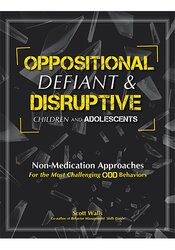TOPIC
Child’s Challenging Behavior & challenges with teens
Below are the best resources we could find on Child’s Challenging Behavior and challenges with teens.
FILTER

TOPIC
- Child’s ADD/ADHD (78)
- Neurodiversity (74)
- Mental Health Challenges (70)
- Child’s Anxiety (70)
- Autism (69)
- Access to Education (68)
- ADD/ADHD (68)
- Young Adult Well-Being (66)
- Learning Styles (66)
- Identity (66)
- Self-Discovery (66)
- Asking for Help (65)
- Offering Support to Others (65)
- Academic Struggles (65)
- Self-Reflection Practices (65)
- Grief (65)
- Communication Skills (65)
- Child’s Social Media Addiction (65)
- Child Depression (65)
- Digital Life (64)
- Connection (64)
- Transitions (64)
- Self-Acceptance (64)
- Self-Worth (64)
- Honoring Emotion (64)
- Criticism and Rejection (64)
- Mentoring (64)
- Social Justice (64)
- Activism/Service (64)
- Talk Therapy (64)
- Setting Limits and Boundaries (64)
- Resilience (64)
- OCD (64)
- Memory (64)
- Inner Strengths (64)
- Gratitude (64)
- Depression (64)
- Managing Energy (63)
- Emotional and Mental Health (63)
- BIPOC Well-Being (63)
- Suicide (63)
- Cognition (63)
- Burnout (63)
- Time Management (62)
- LGBTQIA Well-Being (60)
- Gender Identity (60)
- Confidence (59)
- Curiosity (59)
- Optimism (58)
- Play (56)
- Search for Purpose (55)
- Family Therapy (54)
- Decision Making (50)
- Failure (50)
- Relationship with Money (50)
- Cognitive Psychology (48)
- Imagination and Creativity (47)
- Trauma (46)
- Finding Meaning (46)
- Facing Own Death (46)
- Existentialism (46)
- Genetics (44)
- Problem Solving (44)
- Child’s Trauma (43)
- Psychology (42)
- Family Dynamics (42)
- Motivation (41)
- Goal Setting (40)
- Imposter Syndrome (39)
- Self-Pressure (39)
- Self-Limiting Beliefs (39)
- Bullying (37)
- Epigenetics (36)
- Social Psychology (36)
- Empathy (32)
- Social Anxiety (31)
- Traumatic Grief (29)
- Life Challenges (29)
- Neuropsychology (27)
- Stress Management (26)
- Unconscious Bias (23)
- Focus (23)
- Anxiety (23)
- Masculine/Feminine Dynamics (22)
- Male Friendship (22)
- Challenges with Teens (19)
- Doubt (12)
- Caregiver Well-Being (8)
- Neuroscience (7)
- Shame (4)
- Self-Harm (4)
- Handling a Child’s Illness (4)
- Compassion (4)
- Growth Mindset (3)
- Disabled Well-Being (2)
- Foster Parenting (2)
- Adoption (2)
- Fatherhood (2)
- Self-Reliance (2)
- Cognitive Behavioral Therapy (2)
- Family Acceptance (1)
- Fiction (1)
- Memoir (1)
- Raising Nonbinary Children (1)
- Raising Daughters (1)
- Cross-Cultural Parenting (1)
- Unfulfilled Career (1)
- Physical Health (1)
- Self-Control (1)
- Conflict Resolution (1)
- Art Therapy (1)
- Acceptance (1)
- Highly Sensitive People (1)
- Connection with Nature (1)
- Motherhood (1)
- Self-Love (1)
- Trauma Healing (1)
- Community Healing (1)
- Authenticity (1)
- Positive Psychology (1)
- Happiness (1)
- Habit Formation (1)
- Leadership (1)
- Building Character (1)
- Intimacy (1)
- Guilt (1)
- Self-Development (1)
- Global Challenges (1)
- Environmental Exploitation (1)
- Climate Change (1)
- Work-Life Balance (1)
- Somatic Practices (1)
- Self-Realization (1)
- Self-Mastery (1)
- Self-Esteem (1)
- Self-Actualization (1)
- Social Presence (1)
- Polyvagal Theory (1)
- Obsessions/Compulsions (1)
- Nightmares (1)
- Forest Bathing (1)
- Meditation (1)
- Hypnosis (1)
- Adjusting to Parenthood (1)
- Healing Approaches (1)
- Gaming Addiction (1)
- EMDR (1)
- Dysfunctional Childhood (1)
- Loss of Partner/Spouse (1)
- Handling a Loved One’s Illness (1)
- Compulsive Lying (1)
- Attachment Theory (1)
- Anger Management (1)
WHAT MIGHT HELP
The information offered here is not a substitute for professional advice. Please proceed with care and caution.
EXPLORE RELATED TOPICS
- Adjusting to Parenthood
- Adoption
- Blended Families
- Challenges with Teens
- Child’s Emotional Growth
- Children’s Well-Being
- Co-Parenting
- Cross-Cultural Parenting
- Fatherhood
- Foster Parenting
- Kids and Sports
- LGBTQIA Children
- LGBTQIA Parents
- Motherhood
- Pregnancy and Childbirth
- Raising Daughters
- Raising Nonbinary Children
- Raising Sons
- Parenting
- Child Defiance
- Child’s ADD/ADHD
- Child’s Autism
- Neurodiversity
- Child’s Anxiety
UP NEXT
Parenting
Want More Like This?
To continue customizing your FindCenter experience, create an account. It’s free!
Create an account to discover wisdom, save your favorite content, and connect with teachers and seekers.
Get Started
IT’S FREE
If you already have an account, please log in.










